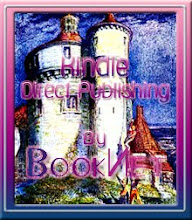Literary Criticism > Humor
Description
by Thomas NewbiggingPREFACE
In the present volume I have included a number of Anecdotes and Sketches which I had previously introduced into my History of the Forest of Rossendale, and also a subsequent book of mine, entitled Lancashire Characters and Places. I felt that it was admissible to do this in a volume dealing specifically with the subject of Lancashire Humour, and I am in hopes that readers who already possess copies of the works named will not object to their being reproduced here. They were worth giving in this connection, and, indeed, their omission could scarcely be justified in a book of humorous Lancashire incidents and anecdotes.
There is surely a want of discernment shown by those who object to the use of dialect in literature as occasion offers. A truth, or a stroke of wit, or a touch of humour, can often be conveyed in dialect (rustice loqui) when it would fail of effect in polite English. All language is conventional. Use and wont settles much in this world. Dialect has its use and wont, and because it differs from something else is surely no reason for passing it by on the other side.
I don't know whether many of my readers have read the poems of T. E. Brown. They are chiefly in the Manx dialect, not Manx as a language—a branch of the Keltic—but Manx dialect English. Here was a man steeped to the eyes in classical learning; a Greek and Latin scholar of the first quality, as his recently published Letters testify. But he was wise as well as learned, and his poetry, not less than his Letters, will give him a place among the immortals, just as the dialect poems of Edwin Waugh will give him a like place. Brown did not shrink from using the speech of the common people around him if haply he could reach their understandings and their hearts.
The proper study of Mankind is man. Not the superfine man, not the cultured man, only, but the man as we encounter him in our daily walk—Hodge in homespun as well as de Vere in velvet.







 "
"






 6:51 PM
6:51 PM
 BookNet
BookNet


 Posted in:
Posted in: 












0 ความคิดเห็น:
Post a Comment